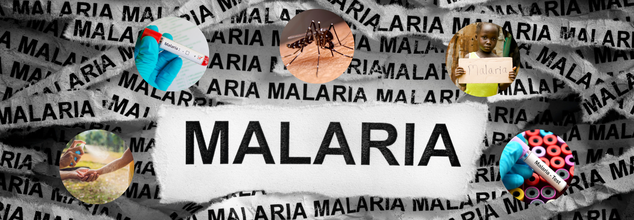- Health Conditions A-Z
- Health & Wellness
- Nutrition
- Fitness
- Health News
- Ayurveda
- Videos
- Medicine A-Z
- Parenting
- Web Stories

Credits: Canva
Whooping Cough Cases Are Rising Across US- How Long Is The Infection Contagious?
Whooping cough cases are skyrocketing at a record rate across US, from Texas to Michigan, health departments are seeing a rise not seen in over a decade and it's not just the numbers that have experts alarmed. The most vulnerable are babies under the age of one, and in some tragic cases, the disease has been fatal.
State and local health departments across the United States are reporting an alarming surge in whooping cough, or pertussis, cases, a dramatic uptick in the respiratory disease that many had believed was in check. The Centers for Disease Control and Prevention (CDC) says there has been a staggering 1,500% increase in reported cases nationwide since 2021, fueling concerns of another widespread outbreak on top of measles.
The upward trajectory in the number of cases isn't just numeric, it's deadly. In Louisiana, two infant deaths have already been confirmed in 2025, the state's first pertussis deaths since 2018. In Texas, the Laredo Public Health Department has already tallied more cases this year than in all of 2024. North Carolina and Michigan are also in triple-digit outbreaks, with 166 and 520 cases, respectively.
In 2023, the U.S. recorded 7,063 cases of pertussis. That spiked to 35,435 in 2024, including 10 deaths—primarily infants under the age of one, reports the American Academy of Pediatrics. Stated Dr. Andrea Garcia, American Medical Association Vice President of Science, Medicine, and Public Health, "It's the highest number in more than a decade."
Historically, pre-pandemic years saw around 15,000–19,000 cases annually. The current spike is not just a statistical uptick, but a red flag for public health.
Why Is Whooping Cough So Dangerous?
Pertussis is a highly contagious respiratory bacterial infection caused by Bordetella pertussis. It infects the upper respiratory system by binding to cilia—microscopic hair-like appendages that function to clear airways—and producing toxins that kill these structures and lead to inflammation.
Whooping Cough Symptoms
The disease is especially dangerous for infants under one year of age, and approximately one out of three is hospitalized due to severe complications such as pneumonia, seizures, or apnea (life-threatening pauses in breathing).
Early symptoms are misleading: runny nose, low-grade fever, and a mild cough—so it's hard to rule out ordinary colds, COVID-19, or RSV. But within one to two weeks, the characteristic "whooping" cough appears, with violent coughing fits that sometimes conclude with a high-pitched "whoop" sound when breathing in.
The illness can last anywhere from 6 to 10 weeks, and while older children and adults may experience milder symptoms, they can still spread the infection to vulnerable populations.
How Long Is Whooping Cough Contagious?
One of the biggest questions for families and caregivers: How long is a pertussis victim contagious?
The patient can infect others as soon as symptoms of a cold appear and is contagious for up to 3 weeks after the onset of coughing.
If antibiotics such as azithromycin, clarithromycin, or erythromycin are given at an early phase, the patient typically is no longer contagious after 5 complete days of antibiotic therapy.
This prolonged period of contagion underscores the need for early detection and treatment—not just for the recovery of the patient but to break the chain of transmission.
What's Causing the Surge in Whooping Cough Cases?
One of the underlying reasons for the recent spike in cases is low vaccination rates, which public health officials say could jeopardize decades of progress.
Dr. Garcia and others blame the resurgence on populations with low or waning immunity, particularly where vaccine coverage has dropped. This not only includes children but also adults who are due for booster shots, as vaccine immunity wanes over time.
How to Stay Protected?
The most effective way to prevent whooping cough is through timely and complete vaccination. For infants and young children, the DTaP vaccine—protecting against diphtheria, tetanus, and pertussis—is administered at 2, 4, and 6 months of age, with booster doses given between 15 to 18 months and again at 4 to 6 years. As children grow into adolescence, a Tdap booster is recommended at ages 11 to 12.
Adults who have never received the Tdap should get a single dose, especially if they are in contact with infants. Pregnant women are advised to receive a Tdap booster during the third trimester of each pregnancy to pass on protective antibodies to their newborns, offering vital early immunity. Additionally, healthcare workers and international travelers—particularly those in close contact with infants or vulnerable individuals—should ensure their pertussis vaccinations are up to date to help curb the spread of this highly contagious illness.
In those who have been exposed to the infection, post-exposure prophylaxis with antibiotics will prevent the disease from developing. The household contact or close contact must be called by the local health provider for confirmation of pertussis.
The sharp increase in whooping cough infections is more than just a number, it's a public health warning sign. The disease, as preventable as it is, is killing infants and testing the limits of community immunity across the country. With its long infectious period, easily mistaken symptoms, and widening transmission rates, pertussis is a genuine threat, especially for infants.

Credits: Canva
World Malaria Day 2025: Theme, History, And Significance
Every year on 25 April, World Malaria Day is observed to raise awareness about one of the deadliest yet preventable diseases. As per the World Health Organization (WHO), there were 263 million malaria cases and 5,97,000 malaria deaths across 83 countries in 2023. The WHO African Region carries a disproportionately high share of the global malaria burden. As per the numbers, this Region was home to 94% of the malaria cases, accounting for 246 million and 95% of malaria deaths. Children under 5 accounted for about 75% of all malaria deaths in the Region.
Ahead of World Malaria Day, WHO also called for renewed efforts at all levels - from global policy to community action to accelerate progress towards eliminating malaria.
World Malaria Day 2025 Theme
This year, WHO has joined the RBM Partnership to End Malaria and other partners in promoting: "Malaria Ends With US: Reinvest, Reimagine, Reignite". This is a grassroot campaign that aims to re-energize efforts at all levels, from global policy to community action, to accelerate progress towards malaria elimination.
World Malaria Day History
World Malaria Day was first celebrated internationally in 2008, building upon the earlier "Africa Malaria Day", which had been observed b African countries since 2001. The date, April 25, was established by WHO in 2007 during the World Health Assembly. In 2007, it was the 60th session of the World Health Assembly where the proposal to rename Africa Malaria Day to World Malaria Day was made to acknowledge the global presence of malaria.
World Malaria Day Significance
The day has a strong significance in healthcare as it brings attention to the disease that still continues to take so many lives, especially in low-income and tropical regions. It also serves as an important reminder to continue spreading awareness about the disease as well as promoting its prevention, treatment and continuous international cooperation to fight against it.
What Is Malaria?
The WHO describes malaria as a life-threatening disease spread to humans by some types of mosquitoes, mostly found in tropical countries. However, they are preventable and curable.
WHO notes: "Malaria is spread to people through the bites of some infected anopheles mosquitoes. Blood transfusion and contaminated needles may also transmit malaria. The first symptoms may be mild, similar to many febrile illnesses, and difficult to recognize as malaria. Left untreated, P. falciparum malaria can progress to severe illness and death within 24 hours.
There are 5 Plasmodium parasite species that cause malaria in humans, and 2 of these species – P. falciparum and P. vivax – pose the greatest threat. P. falciparum is the deadliest malaria parasite and the most prevalent on the African continent. P. vivax is the dominant malaria parasite in most countries outside of sub-Saharan Africa. The other malaria species which can infect humans are P. malariae, P. ovale and P. knowlesi."
What Are The Symptoms?
The early symptoms are fever, headache and chills, which can usually start within 10 to 15 days of getting bitten by an infected mosquito.
Some types of malaria can cause severe illness and death. Infants, children under 5 years, pregnant women, travellers and people with HIV or AIDS are at higher risk. Severe symptoms include:
- extreme tiredness and fatigue
- impaired consciousness
- multiple convulsions
- difficulty breathing
- dark or bloody urine
- jaundice (yellowing of the eyes and skin)
- abnormal bleeding

Credit: Canva
Blood Test That Can Detect 12 Types Of Cancer To Go On Trial In UK
A new AI-powered blood test that can detect 12 types of cancer is to be tested on NHS patients. Using this test, experts would now be able to detect cancerous cells in people much before the symptoms appear. The trial, conducted on 8,000 patients, will analyse blood samples for tiny fragments of genetic material released by tumours.
The test called miONCO-Dx, was created using data from 20,000 patients. Initial tests have produced promising results, having shown that it can detect 12 of the most lethal and common cancers, including bowel cancer, at an early stage, with over 99% accuracy. With no other trial currently working in the same way, this is a world-leader and will support in placing Britain at the forefront of revolutionising healthcare. Notably, the UK government has awarded £2.4m to run the trial of the genetic test, which was developed by the University of Southampton and the biotech startup Xgenera.
How Does It Work?
The test was created by Xgenera, in collaboration with the University of Southampton. As little as 10 drops of blood are all that's needed to detect up to 12 common cancers. The test works by measuring the microRNA in a blood sample and using AI to identify if cancer is present and, if so, where it is located in the body.
What Cancers Will It Detect?
Lung, gastric, prostate, oesophageal, liver, bladder, ovarian, bowel, pancreatic and breast cancers–as well as bone and soft tissue sarcoma and a type of brain tumour. The Department of Health said the test was now ready for the "validation and verification" stage.
Professor Sir Stephen Powis, NHS England's national medical director, said: "This blood test has the potential to help us detect bowel cancer earlier and reduce the need for invasive tests, and the next step in this trial will now be vital in gathering further evidence on its effectiveness and how it could work in practice."
How Is A Blood Test Conducted?
A blood test is a simple medical procedure used to check various health conditions. Here's how it is typically conducted:
1. Preparation: Depending on the test, you may be asked to fast for 8–12 hours. The healthcare provider will explain any specific instructions.
2. Collection: You’ll usually be seated or lying down. A healthcare professional will tie a tourniquet around your upper arm to make the veins more visible. The inside of your elbow is the most common site for drawing blood.
3. Cleaning: The area is cleaned with an antiseptic to reduce the risk of infection.
4. Drawing Blood: A sterile needle is inserted into the vein, and blood is collected into one or more vials or tubes.
5. Post-collection: Once enough blood is collected, the needle is removed, and a cotton ball or bandage is applied to stop any bleeding.
6. Processing: The blood samples are then sent to a lab for analysis.

Credits: Canva
Novavax Says FDA Approval Back on Track for Its COVID Vaccine
Novovax, the maker of the only protein-based COVID-19 vaccine available in the US announced that its shot is on track for full approval from the US Food and Drug Administration (FDA). It is an important development for the company. It has sent its stock soaring up to 21% on Wednesday morning for trading. It is said that this will also ease the fears of political interference that may have caused delay in the process.
Vaccine For Emergency Use Only
While the other mRNA vaccines from Pfizer and Moderna have received full FDA approval for specific age groups, Novovax's vaccine still awaits the approval. It is only authorized for emergency use.
The emergency use authorization or the EUA allows vaccines to be distributed during public health emergencies. However, once the emergency ends, the FDA can remove them from the market unless full approval is granted.
Why Did The Delay Happen?
The FDA originally planned to approve Novovax's vaccine by April 1. However, as per the inside sources, the process was paused at the direction of Dr Sara Brenner, the FDA's acting commissioner. The delay has also raised concerns, especially after Dr Peter Marks, the FDA's longtime vaccine chief, reportedly left his post due to disagreements with the Health Secretary Robert F Kennedy Jr, who is a known vaccine skeptic.
What Makes Him A Vaccine Skeptic?
In the past, RFK Jr. has worked closely with many anti-vaccine activists who work for his nonprofit group Children's Health Defense. While in his recent speech, he said that he has "never been anti-vax and have never told the public to avoid vaccination", his track record shows otherwise.
In a podcast interview, he said, "There is no vaccine that is safe and effective" and told FOX News that he still believes in the now long-debunked idea that vaccines can cause autism. In another 2021 podcast, he urged people to "resist" CDC guidelines on getting their kids vaccinated. "I see somebody on a hiking trail carrying a little baby and I say to him, better not get them vaccinated," he said.
His non-profit also led an anti-vax campaign sticker and he appeared next on the screen to a sticker that read: "If you are not an anti-vaxxer you are not paying attention," reports AP.
What Does The Vaccine Need For Approval?
The FDA recently asked Novavax to outline a plan to collect additional clinical data from people who have received the vaccine. Novavax says it is “engaging with the FDA expeditiously” and hopes to secure full approval as soon as possible. Full FDA approval is considered the gold standard, as it reflects a higher level of scrutiny and confidence in a product’s safety and effectiveness.
How Is This Vaccine Different From Others?
The COVID-19 vaccines that are currently available in the US teach the immune system to recognize the virus' spike protein, which is its outer coating. the Pfizer and Moderna's mRNA vaccine deliver genetic instructions that help the body create a temporary version of spike protein that trigger an immune response. In contrast, the Novovax's shot contains lab-grown copies of the spike protein itself, which are then combined with a substance that boosts the immune response.
This traditional approach—called a protein-based vaccine—has been used for decades in vaccines for diseases like hepatitis B and shingles. For people who are hesitant about mRNA vaccines, Novavax offers an alternative that uses a well-established method.
© 2024 Bennett, Coleman & Company Limited

